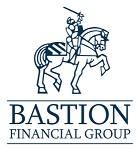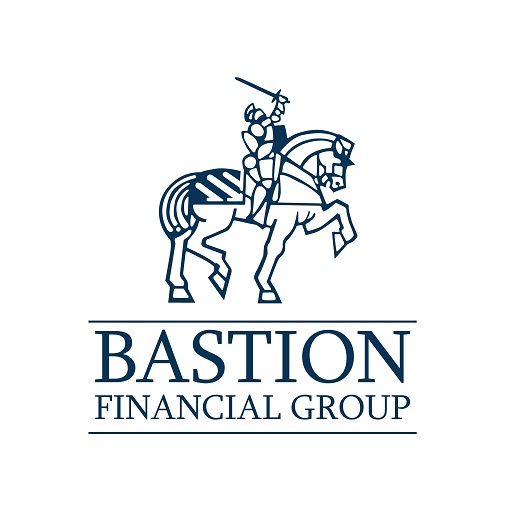Safeguarding one’s hard-earned money from increasingly sophisticated scammers is of paramount importance. By implementing a series of straightforward measures and adopting prudent habits, individuals can effectively protect their savings.

The following article covers the more prevalent types of scams, what to look out for, and importantly tips and strategies to stay safe online.
1. Investment Scams
Investment scams in Australia have seen a significant increase, with Australians losing $321 million between January and October 2022, a 150% rise from the previous year. Scammers use various tactics to deceive potential investors, such as offering fake investments or falsely claiming to represent well-known companies.
Here are three important warning signs to watch out for:
- Unbelievable returns and safety nets: Scammers often offer unbelievably high returns or guaranteed minimum earnings, along with the promise of insurance to protect against losses.
- Lack of documentation and accreditation: It’s crucial to check if the company is registered with ASIC and if the person you’re dealing with is properly licensed. If you can’t find this information publicly, it may be a scam.
- High-pressure tactics and celebrity endorsements: Scammers try to rush you into making quick decisions by using persistent calls and warnings about missing out. They may even create fake celebrity endorsements to gain your trust.
To stay safe,
- Always search for the investment opportunity’s prospectus independently, separate from your interactions with the suspected scammer.
- Verify their credentials and ensure that the necessary documents are publicly available.
- Always speak to a financial advice professional before making any key financial decisions.
2. Remote access scams
Remote access scams involve scammers pretending to be IT professionals or security experts who contact victims unsolicited.
Scammers will convince the victims to give them control of their computers or devices, often by claiming there is a problem that needs fixing. They may ask for access to bank accounts or sensitive information. Once they have access, they install malicious software and commit further crimes. They then have access to all your personal information and finances from a remote location.
What to look out for:
- Unsolicited contact: Scammers will utilize multiple contact methods: online pop-ups, phone calls, and phishing emails to contact you about a problem with your finances or your devices.
- They also engage victims through text messages and emails, aiming to deceive them – they may appear knowledgeable and professional about their subject at first, however, they often resort to excessive persistence or abusive behaviour if their demands are not met, this shows that they are scammers and not legitimate IT professionals.
Any such behaviour or attitude should be considered a red flag, indicating the need to terminate the interaction immediately.
To protect yourself,
- Keep your computer updated,
- Never share personal information over the phone unless you initiated the call,
- Reject requests for remote access,
- Be cautious of unsolicited contacts.
By being aware of these warning signs and taking proactive steps to confirm information, you can protect yourself from falling victim to investment scams.
3. Business email compromise Scam
Business email compromise scams, also known as invoice fraud, involve scammers sending altered payment instructions via email to trick customers into paying money to the wrong bank account.
To identify such scams, pay attention to the sender’s address and look for small inconsistencies. Scammers may also use stolen accounts to send fraudulent messages from official email or phone numbers.
Three red flags to watch out for are:
- Unusual requests
- Uncharacteristic urgency
- The use of personal email addresses for business activities.
If you receive a suspicious order or invoice, contact the business using a reliable phone number to confirm its validity, instead of relying on the phone number provided in the suspicious email.
4. Impersonation scams
Impersonation scams involve scammers pretending to be someone you know, gaining your trust, and then asking for money or personal information. They often start by sending messages that appear to be from a family member or friend, using phrases like “Hi mum.” The scammers may even use information from your social media accounts to make the messages seem more legitimate.
There are three warning signs to watch out for:
- The scammer not properly identifying themselves,
- Making urgent requests for money,
- Using unusual contact methods or tones.
To protect yourself,
- Always verify the message with the person through other means before sending any money
- Never send money unless you are certain it’s going to the right person.
How to protect yourself
Always exercise caution, take time to deliberate, and verify before taking any action. Fraudulent schemes often employ high-pressure tactics to prompt hasty decisions. It’s crucial not to succumb to urgency and make ill-advised choices.
Prioritize seeking independent legal counsel or financial guidance from an ASIC-registered financial advisor, like the Certified Financial Planners of Bastion Financial Group.
Conduct thorough research to ascertain the credibility of the involved parties. Ensure that the entity or website in question is not listed on the International Organization of Securities Commission’s (IOSCO) investor alerts.
Additional points to consider include:
- Authentication of Identity: Verify the legitimacy of the individual representing the organization through the self-sourced contact information.
- Regulatory Compliance: Ascertain that individuals promoting financial or investment products have a valid Australian financial services (AFS) license.
- Verification of Company Details: Cross-reference the accuracy of company information through publicly accessible directories.
- Website Authenticity: Analyze the registration date of the website. A recently established website for an established company should raise a red flag.
More information on scams is available on the Scamwatch website.
Bastion Financial Group specialises in holistic financial planning advice and investment management to high net worth families, professional executives and business owners. We utilise our proven strategic expertise, asset allocation, research based methods, and a focus on education and decades of professional experience to help clients minimise the risk and stress of creating, optimising and managing wealth. We are Certified Financial Planners and active members of the Financial Advice Association of Australia (FAAA). Our Advisory team can be contacted on (08) 6225 5150.
This article has been prepared by Bastion Financial Group Pty Ltd., Authorised Representative(s) of Godfrey Pembroke Group (ABN 38 078 629 973), an Australian Financial Services Licensee, registered office at Level 2, 26 Brisbane Avenue, Barton ACT 2600.
Any advice in this document is of a general nature only and has not been tailored to your personal circumstances. Accordingly, reliance should not be placed on the information contained in this document as the basis for making any financial investment, insurance or other decision. Please seek personal financial, tax and legal advice prior to acting on this information.
Opinions constitute our judgement at the time of issue and are subject to change. No member of the Godfrey Pembroke Group, nor their employees or directors, gives any warranty of accuracy, nor accepts any responsibility for errors or omissions in this document.





